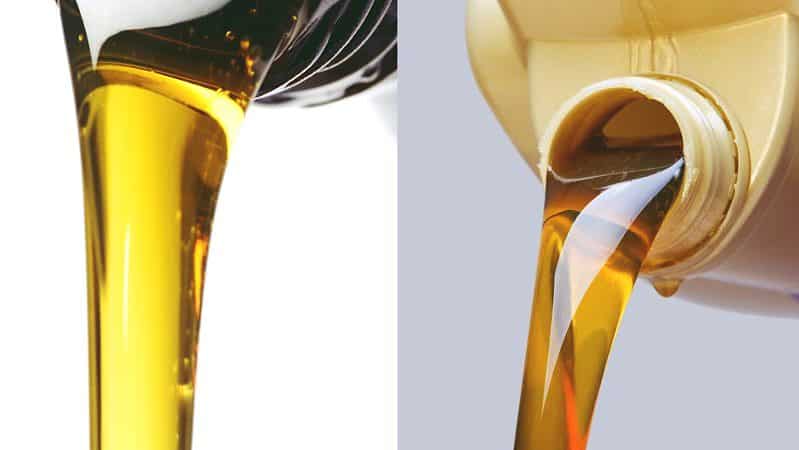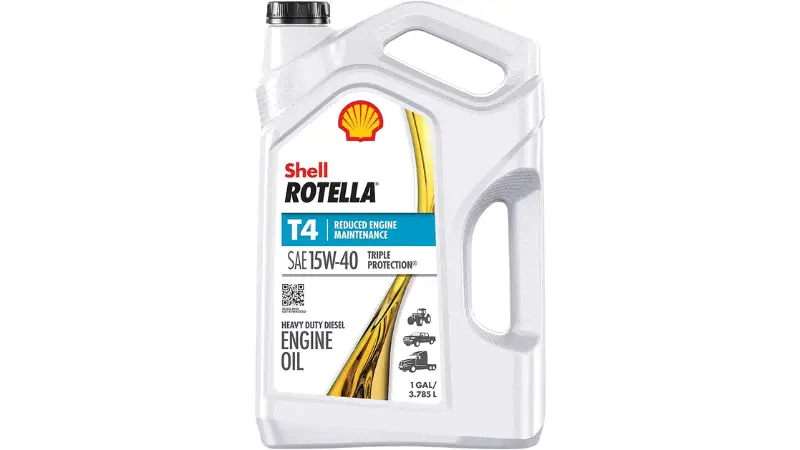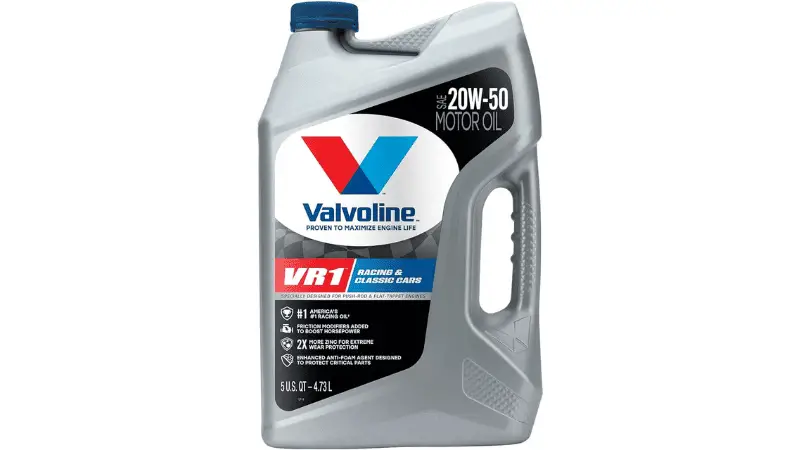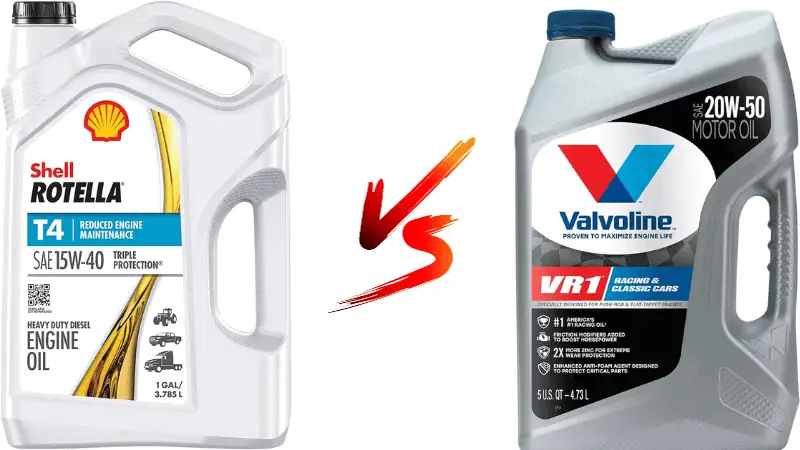Viscosity is essential in determining whether an engine oil is superior to the rest. These viscosities describe its ability to lubricate at both low and high temperatures. There are many options, so it’s critical to understand what your car requires.

For example, 15W40 has low- and high-temperature viscosity ratings of 15 and 40. And 20W50 oil has a viscosity range of 20 to 50, which describes its consistency & density of oil. These thick engine oils make them excellent for use in hot environments.
Because there are so many possibilities, selecting the appropriate oil for your vehicle can be difficult. But we are here to help you to make the right decision for your car. This article will compare 15W40 vs. 20W50 oils to ease your decision.
What is 15W40 oil?

The best engine oil for fleet cars is 15W40. When moving big amounts of goods from one location to another, the vehicles that make up a fleet are invaluable assets.
It’s also a good choice for buses and trucks that run on CNG or LNG. This 15W40 engine oil is made with high-quality base oils and special additives. The ash formulation component of this oil type is the sole explanation for its nitration, thermal, and oxidative stability. Therefore, it reduces the ash that accumulates in the combustion chamber. This oil protects against sludge and other contaminants.
Additionally, it’s perfect for high-performance engines, such as lean-burn diesel powered by natural gas, which can benefit from this technology. This oil satisfies all industrial standards, as fleet cars need optimal performance guarantees to avoid failures.
It also neutralizes nitrates and oxyacids for decreasing deposits because of the internal blend in this oil’s formulation. This oil also protects the cylinder liner and bearing from damage. Moreover, it keeps dirt, rust, corrosion, and sludge away from engine components. It also has phosphorus and zinc. These levels are low to extend the lifespan of the carburetor.
Pros & Cons of using 15W40 engine oil
- Using 15W40 engine oil has some benefits, especially diesel engine oil, such as reducing the heat, making the car use less gas, and reducing pollution. It also has shear stability that reduces oil consumption, making it last longer.
- The use of 15W40 engine oil has several drawbacks, such as increased susceptibility to heat-related problems. When you use 15W40, it’s less viscous than 20W50 oil, which allows it to flow more freely in the winter but puts it at greater risk of shearing in the summer heat. Using this oil increases the likelihood that the engines experience wear and tear over time.
How does 15W40 affect an engine?
The usage of 15W40 oil is beneficial for the majority of engines since it reduces the amount of heat that is generated by the engine. It also has the potential to lower emissions while increasing efficiency. But 15W40 oils might harm the engine by causing parts to wear out and break if you don’t change oils on time.
What is 20W50 oil?

20W50 is yet another high-performance motor oil that is good at what it does. While 15W40 is more fuel-efficient, 20W50 is excellent for almost all vehicles, protecting and cleaning the engine.
This oil formula can reduce deposit formation. The engine’s anti-wear features protect even the most vulnerable parts. In addition, it is ideal for ensuring that the cars can start quickly in cold weather and keep their performance stable in hot weather.
The numbers indicate the viscosity rating of 20W50 oil. The viscosity of this oil, when it is at low temperatures, is represented by the number 20, while the viscosity when it is at high working temperatures is represented by the number 50.
Uses of 20W50 Oil in Heavy Vehicles



Read: Diesel oil in Gas Engine
Heavy-duty vehicles can run on this oil because of its thickness. LPG and CNG-powered vehicles are the most suitable. Then there’s the fact that it works well in engines that require API SL-quality engine oil.
Pros & Cons of using 20W50 oil
- 20W50 motor oil has several positive effects, including reducing engine heating and increasing efficiency while also reducing air pollutants. It’s also good for most old engines and can help you get more mileage out of your automobile.
- There are some cons of using 20w50, as it is a thicker oil so if you use it in replace of 15w40 or other thin oil, then it will increase friction and as a result, fuel & power will lose
How does 20W50 affect an engine?
Using 20W50 oil rather than 15W40 oil can help your engine last somewhat longer than using the previous. In cold weather, 15W40 flows better since it is less dense than 20W50 oil. However, this also indicates that it may be more vulnerable to malfunctions caused by heat than previously thought.
15W40 vs 20W50: What’s the Difference
- At low temperatures, you can expect good performance from 15W40, and at high temperatures, you can expect excellent performance from 20W50.
- Comparing 15W40 to 20W50, the viscosity index of 15W40 is 143, while the viscosity index of 20W50 is 141. So Viscosity will change more rapidly in the case of 20W50 than in 15W40.
- Diesel engines usually use oil with a viscosity of 15W40, while cars that run on gasoline use a thickness of 20W50.
- At low temperatures, 15W40 motor oil is less thick than 20W50 oil. Also, 15W40 motor oil has a high-temperature viscosity of 40, while 20W50 has a high-temperature density of 50.

15W40 vs 20W50: Things in Common
- Using one of these oils is best if your vehicle experiences high temperatures or maintains a steady operating temperature.
- Since they’re not superior, you can use either of these oils.
- These oils prevent deposits and filth from forming in the engine, making them excellent alternatives.
When Should You Use 15W40 Motor Oil?
15w40 is best for heavy-duty automobiles and gasoline engines requiring API SL, SJ, or SM. Determine whether or not your fleet car can handle such thick oil before you use it because not all vehicles and buses can tolerate thick lubricants. The type of oil also depends on how much weight the engine of the car can handle.
When Should You Use 20W50?
Although 20w50 is an excellent choice for heavy-duty engines, it is slightly less efficient in colder locations than 15w40, which is a thick oil. In this case, a viscous oil like 20w50 is the best choice for a vehicle that travels long distances with big loads, such as cargo or passengers, on board. It’s because the engine becomes hotter while driving for long periods. In many cases, 20w50 gives better results than 15w40 when used in very old diesel engines in replace of 15w40.
How Often Should I Change The Engine Oil?
Most car mechanics agree that changing your vehicle’s engine oil every 6000 miles or yearly is the best practice. Depending on your driving patterns and the oil you use, the frequency you should replace your engine oil may vary. Check your vehicle’s owner’s manual or get in touch with an expert mechanic for further instructions.
What’s The Best Kind Of Engine Oil For My Car?
It’s essential to consider your driving habits and the climate where you reside when trying to figure out what kind of engine oil would perform best in your car. If you live in a warm area or drive your car in heavy traffic with lots of stops and starts, 15W40 engine oil is a smart option.
You should go with 20W50 oil if you have a motorcycle or a heavy-duty vehicle. Consult the owner’s manual that came with your car or talk to a qualified mechanic if you are unsure about the type of motor oil used in your vehicle.
What will happen if I use the wrong oil in the engine?
If you put the wrong kind of oil in your engine, it could hurt the way your car runs. The car’s strength will deteriorate and no longer lubricate properly. The viscosity range and flow properties of various oils vary widely.
Therefore, using the wrong oil might lead to engine leaks and noises. In addition, the car may not start in cold weather if the engine oil is not winter or has cold viscosity, as recommended by the manufacturer. But if you replace your oil regularly with 15W40 or 20W50, sludging shouldn’t be an issue.
FAQs
Q. Is 15W40 Better Than 20W50?
If your engine is brand new and requires 15W40, stick with that, but if it has 300,000 miles on it and needs 15W40, go with 20W50 since the thicker lubricant will stick to your bearings and other moving parts more and prevent them from wearing out as quickly.
Q. Can I Mix 20W50 With 15W40?
Yes, and It will only add a little thickness. But it’s best not to mix. Even if the viscosity of two different oil brands is the same, you shouldn’t mix them.
20W-50 is for gasoline engines in most cases and 15W40 oil is for diesel engines. The Difference between the two grades is in the specs, and in older vehicles that do not have variable valve timing, you can use either grade of oil interchangeably.
Q. When Should I Use 20W50 Oil?
This type of oil is for older automobiles or where temperatures are extremely high. Even at high temperatures, 20W-50 helps to keep your engine clear of sludge, extending the life of your engine.
Q. What Is 15W40 Oil Used For?
15W40 is for four-stroke gasoline and diesel engines with or without turbos. It can be used in commercial vehicles, work machines, industrial units, and passenger cars, making it the best motor oil for a mixed fleet of vehicles.
Q. Is 15W40 Good For Petrol Engines?
For as long as the engine’s viscosity and other parameters allow, you can use diesel oil in a petrol engine.
15W40 is ideal for passenger cars, 4WDs, and light commercial vehicles, and it’s compatible with a wide range of conventional fuels, including petrol/LPG, E10, diesel, and more. But mind it, 15W40 oil having API CI or CF4 is always best for diesel engines & having API like SL and SN are best for gasoline which means petrol engines.
Q. Can I Use 20W50 In My Diesel Engine?
20W50 is for large diesel and gasoline engines, high-performance motorcycles, and aircraft. It is also famous as a racing oil and for driving at high temperatures because it doesn’t thin out when it gets hot.
So, Which is better 15w40 or 20w50?
Actually, both can be better again both can be worse. If you take the right oil then it will be better. For example, for diesel engine, you have to check engine type and conditions. If the engine is heavy or old then you should go for 20w50. But in case of this you have to make sure that you are taking 20w50 CI-4 or CF-4. If the engine is gasoline then you have to select API SL/SJ type 20w50 oil. On the other hand, you have to select 15w40 CI-4 oil for better performance of medium-speed new diesel engine lubrication. which is recommended by most of the diesel OEMs.
Conclusion
In the end, 15W40 VS 20W50, which is better? The decision regarding the engine oil most suitable for your vehicle rests solely in your hands. Both 15W40 and 20W50 have advantages and disadvantages; therefore, you should base your decision on what will benefit your car the most.
The price of 15W40 is more excellent than that of 20W50 is another deciding element you need to consider. Both of these oils are interchangeable and have approximately the same levels of effectiveness. And if you are unsure, always seek the advice of a professional about the sort of oil to use in your vehicle’s engine.
Read :
